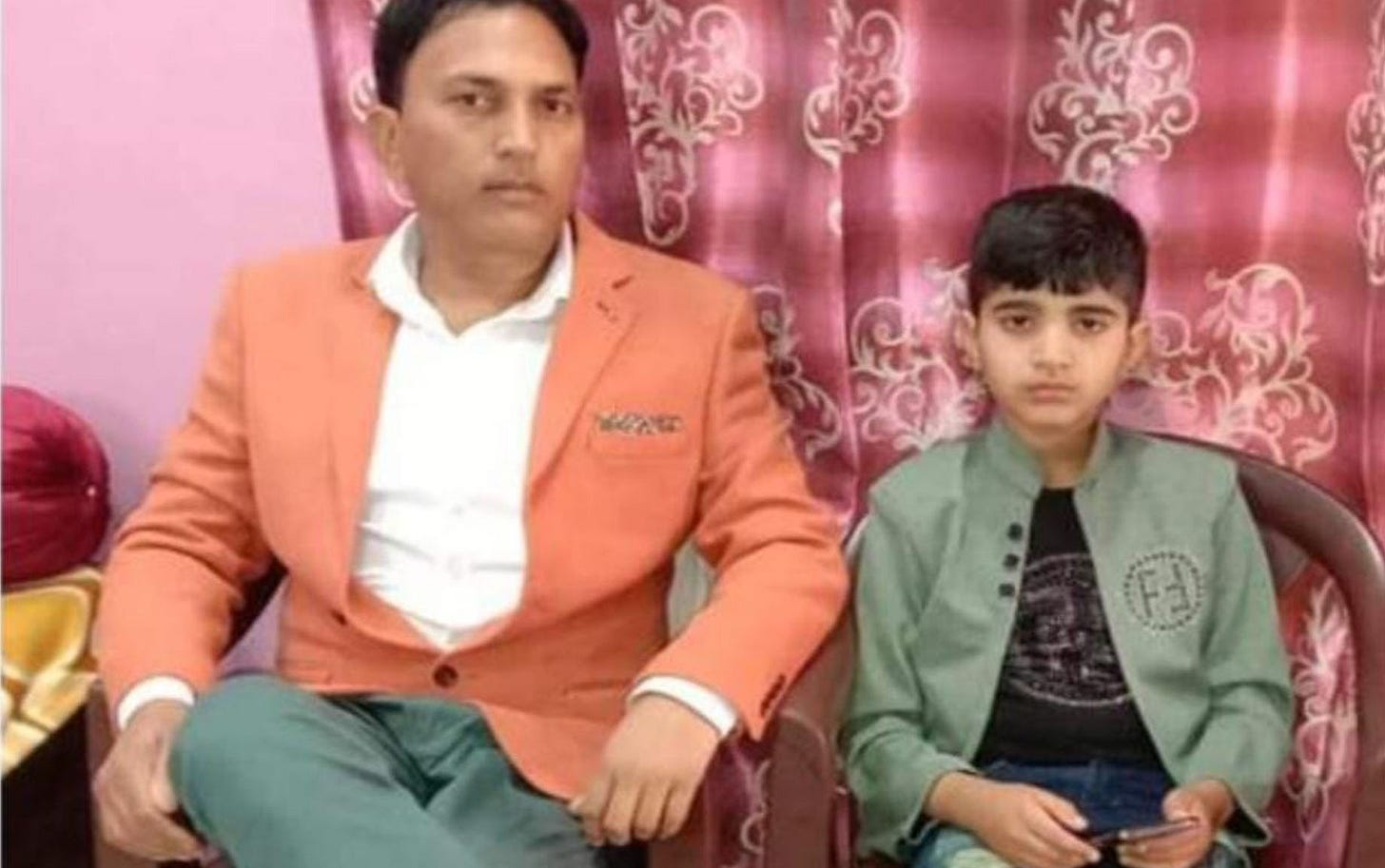
“I’d like to ask them to come and visit our home so that we can thank them properly,” said Sanjeev Kumar Bhargav, speaking of the Muslim man and his nephew who stopped and picked up his 13-year-old son’s lifeless body and took him to the hospital when no one else was willing to as the shells screamed in from Pakistan.
Vihaan Bhargav was killed on the morning of 7 May 2025, as his family fled their home in Poonch, a district near the Line of Control in Jammu and Kashmir. Poonch was home to 15 of the 21 civilians killed in the four-day conflict between India and Pakistan in May.
During my visit to Vihaan's house for a story on the civilians who lost their lives in the conflict, his uncle, Bhaskar Sharma, told me that his parents wished to grieve in peace and did not want to be bothered by the media and politicians.
I respected their wishes and gave them some space.
On 3 June, just a day after my story was published, I came across a video from a local media outlet on Facebook, Halla Bolle Live. They were speaking of how the Muslim man and his nephew came to their aid when no one else would, and they called for communal unity despite their sorrow.
I reached out to them to learn more about this event, which, in my opinion, provided some relief, after days and weeks marred by hate speeches and violence against Muslims after the terrorist attack in Pahalgam that took 26 Hindu lives.
To Halla Bolle and me, Sanjeev said that he did not know the two Muslims who brought his son to the hospital and wanted to find them.
Sanjeev remembered the terrifying bombardment and the difficult choice his family faced on 7 May 2025, whether to stay or go.
At first, they were not worried, but the atmosphere turned frightening when a massive explosion at approximately 2:30 am jolted them awake. Sanjeev remembered that when his wife inquired if Vihaan was afraid. He replied that he was not.
“Maybe he was being brave,” said Sanjeev.
What scared them into leaving was discovering shell fragments in their yard the following morning. Without delay, Sanjeev said he had already called his friends, who were on their way out of Poonch amidst the bombardment, packed some essential items, and got his wife, son, his sister, her husband, and their son into the car.
Upon crossing the Sher-e-Kashmir bridge, a tremendous explosion occurred, knocking him unconscious. A shell struck a service station in Bhainch, just outside Poonch city. Their car was nearly 800 m away. As the debris struck their vehicle, Vihaan died instantly. His mother, aunt, uncle, and their son, who were all seated in the back, sustained injuries.
“Aadu…Aadu…speak up,” Sanjeev recalled pleading while he sobbed, knowing that his son had died.
Sanjeev recalled that thousands of people were on the road, on bikes, in cars, and in taxis, fleeing Poonch in a state of panic. The family cried and called out for help, but no one stopped.
After some time, an ambulance arrived, and the family stood in front of it. Sanjeev was not injured but rode with his wife and sister to the hospital.
It was then that two unknown men who appeared to be Muslim came and helped them into the ambulance.
Sanjeev heard from other people that they stayed with Vihaan’s body, helped his sister’s brother and their son into the ambulance when it returned, and then brought Vihaan to the hospital in their private car.
“I wasn't there, but people told me they brought my son to the hospital in their own car,” said Sanjeev, referring to a village almost 9 km from Poonch. “It was all done by them. I don't know their name, only that they are from Chandak.”
Sanjeev said that he heard from other people that the elder man was a junior engineer and the younger one was his nephew.
Speaking about the selflessness of the duo, Sanjeev said that Pakistan wasn't able to divide people based on religion, but in fact, brought them all together.
“Our Poonch district is known for its brotherhood between all communities—Hindus, Muslims and Sikhs, who are good to each other and will continue to be like this in the future,” he said.
Requesting help in spreading the word, so that his thanks and invitation reached the duo, Sanjeev said, “If they hadn't brought his body to us, we might not have been able to properly cremate him with all rituals and put his soul to rest.”
Read Ayushi Malik’s full story here.
Also read:
Field Notes: ‘What Do We Want? Just Freedom Like You’
After a day and a half of familiarising myself with the local Bundelkhandi language and food and acclimatising to the harsh heat (almost 40 degrees), I set out towards the core area of the Panna Tiger Reserve (PTR), over 30 km from Madla, where I was staying.




